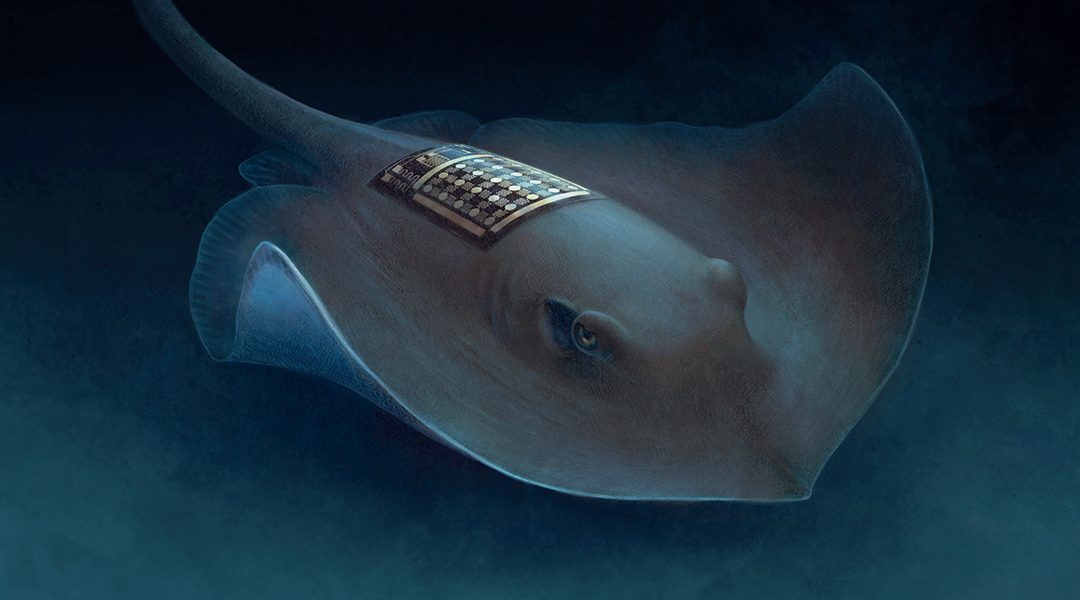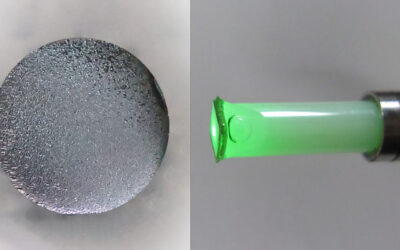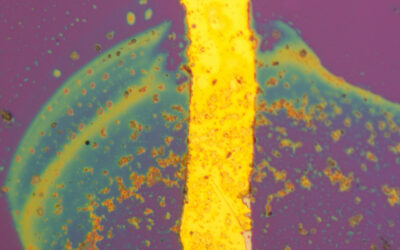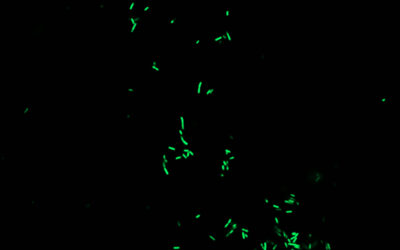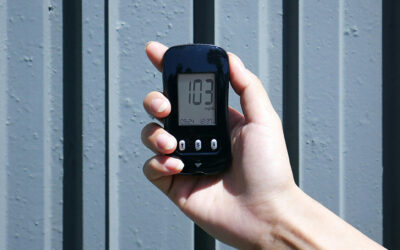The need to understand the effects of environmental change on marine ecosystems is of increasing importance. However, such research relies on gathering large datasets relating to species’ physiology, habitat, and migratory patterns.
In Small, Prof. Muhammad M. Hussain from King Abdullah University of Science and Technology (KAUST) and co-workers develop wearable, non-invasive “marine skin” devices for monitoring and data gathering — or biologging — of marine species, in particular for deep-sea investigations.
Conventional methods for biologging are invasive and often use heavy or cumbersome devices attached to the animal of interest. Therefore, the ability to develop non-invasive and lightweight devices provides a better method for biologging of species in their natural environment.
The device uses a Bluetooth system-on-a-chip (SoC) device on a printed circuit board, which is encapsulated in a sleeve of polydimethylsiloxane (PDMS), producing a flexible and stretchable electronic skin.
PDMS was used because it is highly durable (in that it does not degrade in seawater or in biological environments). Furthermore, the device doesn’t irritate the skin when attached to the species, regardless of animal. Even better, this device is able to retain performance at deep-sea-level depths.
The device was used to electronically tag Barramundi fish as well as Seabream, species of rays, and the common goldfish, and did not hinder the animals’ natural movements or behavior.
To find out more about these marine-skin devices, please visit the Small homepage.

